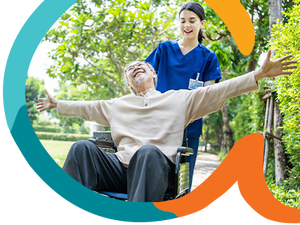-
 Retrouver dansMembres
Retrouver dansMembres Retrouver dansVidéos
Retrouver dansVidéos Retrouver dansChaînes
Retrouver dansChaînes
This website uses cookies to ensure you get the best experience on our website.
To learn more about our privacy policy Cliquez iciPréférence de confidentialité
- Mots clés - #home care NYC #NYC home care agencies
-
- Dernière mise à jour 7 octobre 2022 0 commentaire , 138 vues, 0 comme
- 231 W 29th St suite 400, New York, NY 10001, USA - Obtenir des directions
More in Politics
Related Blogs
Les archives
In-home Assistance for the Elderly is Provided via Companion Care Programmes
Corps
In the aftermath of the coronavirus epidemic & its effect on senior group living settings, many New York City residents are opting to age in place at home. It has prompted the exponential rise and diversification of home care agencies in NYC. There are several factors to consider if you are contemplating hiring a home caregiver for a senior loved one.
Your first inquiries may concern the non-medical services they provide. It is reasonable that you would want additional information about the various services and how they may assist you. Knowing the needs of your loved one will aid in the process.
Non-medical caregivers offer a variety of supporting services related to daily life and domestic duties. For instance, they may provide assistance with washing, grooming, and clothing. If an older senior has mobility challenges, it might be necessary to have someone there to aid and avoid falls.
When domestic chores such as light cleaning and laundry become onerous, caregivers may take up the slack and manage them. It allows family members to spend more time socializing and less time tending to domestic duties when they visit. The objective is to help elderly adults maintain their independence.
It is usual for meal preparation and grocery shopping to become problematic as individuals age since many lose enthusiasm for cooking. In addition to assisting with errands and transportation to non-home-based appointments, home care professionals may also assist with other tasks.
Companionship, discussion, and social activities may assist seniors in enjoying their life during their at-home hours. Numerous individuals who live alone complain about loneliness, and caregivers provide reliable socializing. Matching the interests and characteristics of the caregiver and the patient is also essential since it facilitates a natural connection.
For certain elderly individuals, a certified nursing assistant (CNA) may be a more suitable caretaker or an adjunct to a non-medical practitioner. CNAs may take and record vital signs, aid with walkers and wheelchairs, and assist with medical equipment like oxygen tanks.
Additionally, they may remind elders to take their medications on time and assist those who can sit up in eating. CNAs in the home play an important role in monitoring a patient's status and notifying a physician or registered nurse of any changes. Their presence gives family and friends peace of mind.
Photos
Carte
-
Emplacements sur MyWorldGo
Information de Lieu
- Emplacement: 231 W 29th St suite 400, New York, NY 10001, USA - Obtenir des directions
- Adresse formatée: 231 W 29th St suite 400, New York, NY 10001, USA
- Adresse de rue: suite 400,231,West 29th Street,New York
- Ville: New York County
- Code postal: 10001
- Etat: New York
- Pays: United States







commentaires